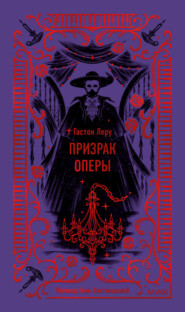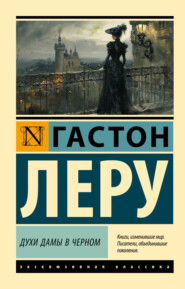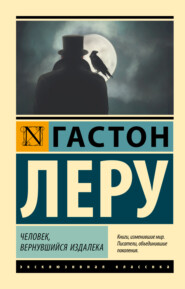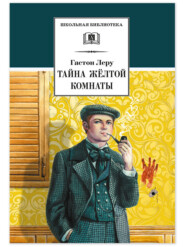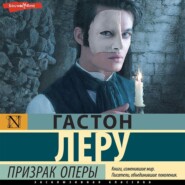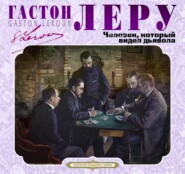По всем вопросам обращайтесь на: info@litportal.ru
(©) 2003-2025.
✖
The Bride of the Sun
Автор
Год написания книги
2018
Настройки чтения
Размер шрифта
Высота строк
Поля
Then the curtain rose, revealing a pedestal, on which was the bust of a general. It had served several times before for a like purpose, but this time it was supposed to represent Garcia. Round it was grouped the whole company, which intoned a triumphal chorus. Then, one by one, the actors filed past the bust, each with his little speech and a wreath.
The bust was almost buried in flowers when an Indian girl appeared. She was wearing the Quichua costume:—a little tunic open at the neck, and a dozen skirts of various colors worn one on the other; over her shoulders, a woolen mantlet, secured at the throat by a spoon-shaped brooch.
She was greeted with a roar of delight by the Indian part of the audience. And she, in her turn, that nothing might be lacking in Garcia’s triumph, sang something in Indian, something by which the Indians also put all their hope and trust in the Savior of the Country. At the last verse she shouted, as was only meet, “Long live Garcia!” the crowd taking up the echo. There were other voices, however, shouting, “Huayna Capac Runtu!”
A gorgeous din followed. Every Indian in the theater jumped up, cheering, joined by scores of half-breeds who suddenly remembered their descent and, tired of being treated with contempt by the whites, joined in the roar of “Long live Huayna Capac Runtu!” The purely Peruvian element sat motionless in stalls and boxes.
Meanwhile, in the presidential box, Garcia had drawn to his constellated bosom the resplendent shirt-front of the bank-clerk, embracing before all the illustrious descendant of the Inca kings. The house, enthusiastic before, became delirious.
The gala was over, and Dick was carried out of the theater as he had been swept in. He had seen enough to realize how useless had been the Marquis’ visit to the Dictator. Garcia was helpless without the Indians, and the real master of the situation was Oviedo. Dick had now no hope but in Huascar. It was eleven o’clock, and he hurried back to the inn.
There he found Natividad and the Marquis equally anxious at his protracted absence. As to Uncle Francis, nobody had seen him since the arrival at Arequipa, and nobody worried about him. Dick told them of his meeting with Huascar; he was convinced now of the Indian’s good faith.
They did not exchange another word until midnight, anxiously peering out of the windows for some sign to confirm their hopes. Natividad was as anxious as his two companions. He was a kind-hearted man, and had gone so far into the adventure that he could no longer withdraw without loss of self-esteem. Moreover, he was so compromised, administratively speaking, that, all things taken into consideration, he could not do better than stand by the Marquis to the end. Whatever the result, he was sure that Don Christobal would not let him starve.
Midnight came, and the twelve strokes rang out from the church tower.
The theater had long since given up its last enthusiasts, and the square was now more or less deserted. All the paper lanterns had gone out, but the night was a clear one, and they could easily distinguish the shadows moving homewards under the arcades. None of them, though, came toward the inn. A quarter past twelve. Not one of the three men in the room dared say a word!
At half-past twelve, still nothing! The Marquis heaved a strangled sigh. At a quarter to one, Dick went over to the little lamp smoking on the table, took out his revolver, and opened it to see that it was loaded and working properly.
“Huascar has fooled us like children,” he said, vainly striving to control his voice. “He came here in broad daylight, with the knowledge of his accomplices, and threw sand in our eyes. He has kept us quiet for hours that were priceless to them, and might have been to us. I have no hope left. Maria-Teresa is lost, but I shall see her again if I die for it.”
He left the room. Don Christobal, catching up his cloak and arming himself as well, followed, Natividad in his wake. They crossed the square in silence. At the top of the alley leading down to the adobe house, Natividad asked the Marquis what he intended to do against fifty armed men.
“The first man we see will be offered a thousand soles to speak. If he refuses, a knife in the ribs. Then we shall see.”
When they reached the point where they had been stopped by Civil Guards earlier in the day, they were astonished to find the sentry gone. For a moment, there was a flicker of hope in their hearts, but when they had advanced another twenty yards and saw the house unguarded, they realized the truth. They ran forward and entered the open door. All the rooms were deserted. In one of them they found the same pungent odor as at the hacienda on the Chorillos road. “They are lost,” muttered Natividad, while the Marquis, breaking down at last, called his children’s names aloud through the deserted house.
Dick, exploring the place, fell over a crouching figure, and put all his pent-up rage into throwing the man. Half strangled and trembling with fear, the captured half-breed explained that he was the owner of the house. He had been roistering in the city, but the threat of death sobered him and loosened his tongue.
Just after eleven o’clock, a closed carriage had driven up to the door. He did not know who had entered it, but it had been escorted to the station by all the women and the Red Ponchos. This he knew for certain, because he had followed them out of curiosity. At the station, the man they called Huascar had given him some money, telling him to go away and not to return to the house before daylight “The blackguard!” growled Dick. “He knew we would come here when he didn’t turn up! Come on! To the station, quick!”
When they reached it, it was with the greatest difficulty that they finally unearthed an employee asleep on a bench. He made no secret of the fact that a large number of Indians had left at a quarter past eleven, in a special train ordered by Oviedo Runtu “for his servants.” No, they could not get another special train that night for all the money in the world. If they wanted to get to Sicuapi as well, they would have to wait until the morning. This said, he returned to his interrupted nap.
That night was a terrible one for the three men. They made another vain attempt to reach Garcia, and then wandered through the streets until dawn. Don Christobal was beginning to talk incoherently, and showed all the signs of approaching dementia. Again and again Dick led them back to the adobe house and wandered through the empty rooms. The half-breed had taken to his heels.
Natividad was not in a much better condition than his companions, and when the first morning train started, it carried three specters in one compartment. Other travelers, hesitating at the door, literally bolted when they saw their wild eyes.
The train went as far as Sicuani, but they did not reach it the same day, being obliged to pass a night at Juliaca, nearly ten thousand feet above sea-level, where they again found the trace of the Red Ponchos. It was intensely cold, and all three were taken with mountain sickness, which made them so weak that they were forced to take some rest. They only partially recovered next day, at Sicuani. There was a motor service between Sicuani and Cuzco, which was working despite the revolution, but the Marquis, unwilling to trust anybody or anything, bought a car for himself at a fabulous price. He was also moved by the thought that it might prove useful later on.
Just as they were leaving the station road in their motor, they met Uncle Francis, cool, unperturbed, and fresh as a daisy. An avalanche of questions did not ruffle his calm.
“Well, I lost you at Arequipa and did not know what to do. Then I said to myself; ‘They are sure to be somewhere near the Red Ponchos.’ We are following them, are we not? So when I saw one, I stuck to him like a leech. I followed him to a little house near the river, which was guarded by soldiers. That, said I to myself, must be where these dear children are being kept prisoners. You did not appear, and I thought you had gone ahead. Everybody knows where these ceremonies take place, I suppose. But I did not, so I stuck to my Red Poncho. When they went to the station, I followed. Somebody told me it was a special train and I couldn’t get in, but I gave the guard two soles and slept in his van. When we arrived, I couldn’t see you anywhere. I went on to Cuzco, but you were not there either. So I came back to meet this morning’s train. And here I am!”
Uncle Francis does not realize to this day how near he came to being strangled by his dutiful nephew, or stabbed by the Marquis. His superb calm nearly drove them frantic.
“Where did they take Maria-Teresa?” demanded Dick, roughly, though he owed the unconscious tracker more thanks than blame.
“You know well enough! To the House of the Serpent.”
“The House of the Serpent!” Dick turned, to Natividad, gripping his sleeve. “I have heard you say something about that place. What does it mean?”
“It means that they are in the Antechamber of Death.”
BOOK V—THE HOUSE OF THE SERPENT
I
Maria-Teresa opened her eyes. What was this dream from which she had awakened, or into which she had fallen? Little Christobal’s plaintive voice brought her keen realization of the brutal truth. She held out her arms to the child, but felt neither his kisses nor his tears on her face. Her eyes were still heavy with magic sleep, and she opened them with difficulty.
When, gradually, she came out of the abyss of darkness and dreams into which she could be plunged almost instantly by the sacred sachets always ready in the hideous fists of the three living mummies; the mammaconas, too, had terrible perfumes which they burned round her in precious vases, sandia more pungent than incense, more hallucinating than opium, which transformed the Bride of the Sun into a beautiful living statue. Then they could sing their songs uninterruptedly, for Maria-Teresa had gone to another world, and heard nothing of what happened about her.
Curiously enough, her spirit then carried her back to the hour when the knock had come at her window in Callao and when, dropping the big green register to the floor, she had run to meet Dick. She was worried, too, by the ever present memory of an unfinished letter to their agent in Antwerp, which she had been writing when that other knock at the window had sent her running to Dick again. She remembered with horrible distinctness the appearance of the three living mummies, swaying in the darkness, and the feel on her mouth and face of the hands made parchment-like by the eternal night of the catacombs. Waking from this lethargic slumber, she thought she had shaken off a dream, but when her eyes opened, she no longer knew whether she had not just entered into a terrible dreamland.
When Maria-Teresa opened her eyes this time, she was in the House of the Serpent. She knew, for the mammaconas had told her, that when she awoke there she would be near unto death. There it was that Huayna Capac, father of the last King of the Incas, would come to fetch the bride offered to Atahualpa, and take her with him to the Enchanted Realms of the Sun. In the lucid moments left to her during the voyage, when she was given the nectar that kept her alive, the mammaconas had taught her the duties of the Bride, and the first principles of the faith to which she was to be sacrificed.
At first, Maria-Teresa had hoped that she would be happy enough to lose her reason, or that the terrible fever which took her would free the troubled soul before the body was taken to martyrdom. But the mammaconas knew the secrets which cure such fevers, and had given her to drink a reddish liquid, chanting the while: “Fever has spread over you its poisoned robe. The hated race shall never know our secrets, but our love for Atahualpa’s bride is greater than our hatred. Drink and be well, in the name of Atahualpa, who awaits thee!”
So she had returned to life, only to die again, and so, a nerveless statue, she had traveled right across Peru, to the little adobe house at Arequipa, the last stopping-place before the House of the Serpent. There she had seen Huascar for the first time, bearing in his arms something covered with a veil. Careless of all the listening ears about her, she had risen, and called to him as to a savior. He had answered: “Thou belongest to the Sun, but before he takes you, thou shalt have a great joy. Thou shalt see thy little brother again.” Then he lifted the veil and showed her Christobal, sleeping. She had run forward, while he had retreated in terror. None but the appointed may touch the Bride of the Sun, and the three guardians of the Temple were there, armed, and swaying gently. One of them signed to a mammacona, who carried the sleeping boy to his sister; she burst into tears, for the first time since her captivity. The child opened his eyes and clung to her, sobbing, “Maria-Teresa! Maria-Teresa!”
“How did he come here? You would not hurt him!”
“We shall do as he wishes. He came to us, not we to him. He himself shall decide his fate. Let him beware of his words. That is all I can say to you, all I can do for you. Is that not so, ye Guardians of the Temple?”
Maria-Teresa, clutching the child to her, looked at them with fresh terror painted on her features; at Huascar, calm and motionless; at the three living mummies, gently swaying.
“What do you mean? How can a child beware of his words?”
Huascar, without moving, then spoke to little Christobal.
“Child, will you come with me? I will take you to your father.”
“No! I will stop with Maria-Teresa!”
“The child has spoken,” said Huascar. “So it is ordered. Is it not so, Guardians of the Temple?”
The three horrible skulls swayed gently.
Then Huascar, before leaving, had chanted the words of an Almara psalm: “Blessed are those who shall come pure to the Kingdom of the Sun, pure as the hearts of little children, at the dawn of the world.”
“Huascar, have pity! Remember my mother! Have pity!”
Huascar bowed to the Guardians of the Temple and went out silently.
Maria-Teresa, crooning over little Christobal, covered him with kisses. “Why did you come, little one? Why did you come?”
“To tell you not to be afraid, Maria-Teresa. Papa and Dick are coming. They are following, and will save us both. But if you must die, little sister, I will die with you.”







